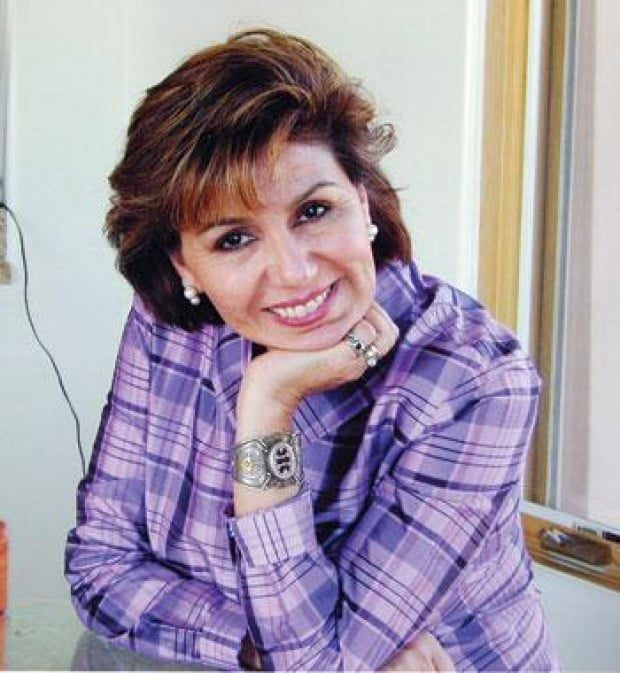Malibu Film Society to screen documentary on Afghanistan’s version of “American Idol,” with commentary by local Afghani activist.
By Melonie Magruder / Special to The Malibu Times
In the award-winning documentary “Afghan Star,” screening Saturday this week for the Malibu Film Society, regular Afghanis sing in competition à la “American Idol.” Unlike their American counterparts, however, these pop-star wannabes risk their lives to perform publicly.
The film, which won the World Cinema Audience and Directing Awards for a Documentary at the Sundance Film Festival, will be given context by guest speaker Zohra Daoud, a Malibu resident who fled Afghanistan following the Soviet invasion of 1979.
The television series “Afghan Star,” on which the documentary is based, is produced in a television industry barely five years old, crewed by young people who not only had never worked in media, but who grew up in a country torn by war, ethnic rivalry, regional corruption and the imposition of religious dogma that tries to crush anything smacking of Western-style heresy, including public singing.
Daoud will speak of the dichotomy between present-day Afghanistan, deeply wrenched by a disputed presidential election and suffering the ongoing effects of a war being waged by America and its allies, and Afghanistan of 30 years ago-then a country of intellectual vitality and peaceful beauty.
“Ordinary Afghanis are looking for a government that can provide peace now,” Daoud said, while sitting on her sunny terrace with a view of the Pacific. “But when you don’t have paved roads or schools or electricity, the notion of democracy looks absurd.”
Since the rise of the Taliban, culminating in the events of 9/11, Daoud has spoken out for her country’s people-particularly for the oppressed women who are discouraged from attending school or working outside the home.
Daoud grew up in a family of privilege and was well educated. She was elected “Miss Afghanistan” in a countrywide competition and married a professional pilot. In 1980, the couple sought political refugee status in Virginia, working at McDonald’s and a French bakery while watching in horror as their homeland descended into chaos under war with the Soviets.
Today, 30 years later, Daoud hosts a satellite television talk show on Afghanistan’s issues and organizes a nonprofit to help Afghani women. Her three children (graduates of Malibu High School) have successful university careers, and her husband Mohammed left a prosperous position with United Airlines to return to Afghanistan and serve in its National Assembly.
Daoud spoke at length about the opportunities a fledging democracy presents while acknowledging its challenges in a country where corruption seems to define any governmental action.
“[Afghanistan President Hamid] Karzai won his first election by 55 percent not because he was popular, but because he had a link to the U.S. and we felt that would help with our poverty,” Daoud said. “What you see now is a result of 30 years of war and the warlords’ corruption. Abdullah [the candidate who withdrew from the recent electoral run-off, leaving Karzai to be declared the victor] wanted to bring that corruption and fraud to the forefront. He withdrew to avoid a constitutional crisis.”
Although Daoud is not optimistic about Karzai’s tenure, declaring he has simply surrounded himself with corrupt sycophants, she sees advancement in her homeland.
“Yes, we are very poor,” Daoud said. “But there is food on the table. There is television. There is a free media. Afghanistan has several airlines. Girls are going to school again. There are 64 women in the National Assembly now [out of a total of 352]. Maybe that’s just symbolic, but it’s progress in my eyes.”
Weighting this progress is the cultural imperative of tribalism and a resurgent Taliban. With high unemployment and no available education in the provinces, young Afghani men gravitate to the repressive religious and political movement that has been fighting a guerilla war against the Afghanistan and Pakistan governments.
“The U.S. Army spends $100,000 on an armored Humvee,” Daoud reflected. “If that money went to building a school and paving roads in rural villages so that people could get their goods to market, the young men would be supporting U.S. efforts, not the Taliban’s.”
Daoud would like to see NGO (non-governmental organization) efforts go toward digging wells, bringing electricity and jobs to rural villages. She cited the example of a Dutch group that convinced one region’s farmers to plant a more profitable crop of saffron instead of poppies.
“We must go village by village and talk with elders,” Daoud said. “Ultimately, we will probably have to invite the Taliban back to the government, but we must negotiate from a position of strength, not weakness. We can’t compromise on free speech or the rights of women in a true democracy.”
Daoud’s daughter, Sara, currently studying history at Stanford, raised $3,000 to purchase school supplies for an Afghani village while a student at Malibu High School. She returned to Kabul with her mother last summer.
“Growing up, my parents described Afghanistan so romantically,” Sara said. “But going back, it was just chaotic. On one hand, people are trying to live their lives and on the other hand, you see troops passing by in the streets. Historically, Afghanistan always had a very cosmopolitan, global culture. I’m proud of my Afghani heritage and I want to go back someday and help it become that way again.”
The Malibu Film Society will screen “Afghan Star” Saturday, Nov. 14, at 7:30 p.m. at the Malibu Jewish Center & Synagogue, 24855 Pacific Coast Highway. More information can be obtained online at www.malibufilmsociety.com.

